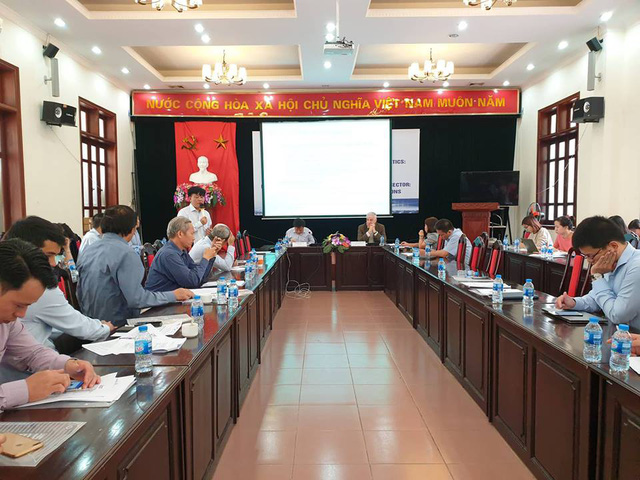Enterprises and experts complained about high costs that cause difficulties in logistics activities in Vietnam at a workshop in Hanoi on Monday morning.
The event was held by the Central Institute for Economic Management (CIEM) under the Ministry of Planning and Investment to discuss current issues and policy recommendations on improving the competitiveness of the Vietnamese logistics sector.
At the meeting, experts pointed out the drawbacks of Vietnam’s logistics, especially transport cost and ‘coffee money.’
According to Nguyen Minh Thao, head of CIEM's Business Environment and Competitiveness Department, the transport cost accounts for nearly 60 percent of logistics expenditure.
Particularly, road transport is the priciest in all types of transport, not to mention the ‘coffee money’ and other unofficial costs, which often make up five to ten percent of transport expenses in total.
In addition, Vietnam’s cost- and time-consuming regulations on business conditions and specialized management have also pushed up the prices of services and reduced the competitiveness of the logistics industry over the past time, according to the experts.
A CIEM research showed that the total time for customs clearance in Vietnam is grossly long, while costs are high and specialized management procedures are still complicated.
Notably, it takes 105 hours to perform export activities and 132 hours to complete import procedures in Vietnam.
This performance put Vietnam at the 93rd position in the ranking of customs clearance speed, while Thailand was at 57th place, Singapore, 42nd and Malaysia, 61st.
The total cost for a 40-foot container to be shipped from Vietnam to Los Angeles is US$2,532, of which domestic logistics costs amount to $572, or 22.59 percent, according to CIEM.
For each truck, road maintenance costs about VND17.5 million ($752.5) per year, but drivers still have to pay toll fees when using BOT (build-operate-transfer) infrastructure.
For instance, a transport vehicle operating on the route from Ho Chi Minh City to Cai Mep International Terminal in the southern province of Ba Ria – Vung Tau, which is less than 200km, has to pass as many as eight toll stations.
The toll fees are thus around VND780,000 ($33.54) for both departures and returns, accounting for nearly 20 percent of transport cost.
Tran Duc Nghia, director of logistics company Delta, attributed the steep transport cost, which makes up 60 percent of the total logistics expense, to Vietnam’s weak capacity of connecting transport modes and leveraging the potential of different types of transport.
The government should set up a new state agency to take charge of this issue, or assign the task to a specific ministry or agency, Nghia suggested.
In the context of the Fourth Industrial Revolution, CIEM’s director Nguyen Dinh Cung emphasized the need to boost research and application of new technologies such as blockchain in logistics service management.
Cung believed that such practices can help reduce costs, increase competitiveness, and promote e-commerce and automation to elevate the logistics sector.
Like us on Facebook or follow us on Twitter to get the latest news about Vietnam!





















































